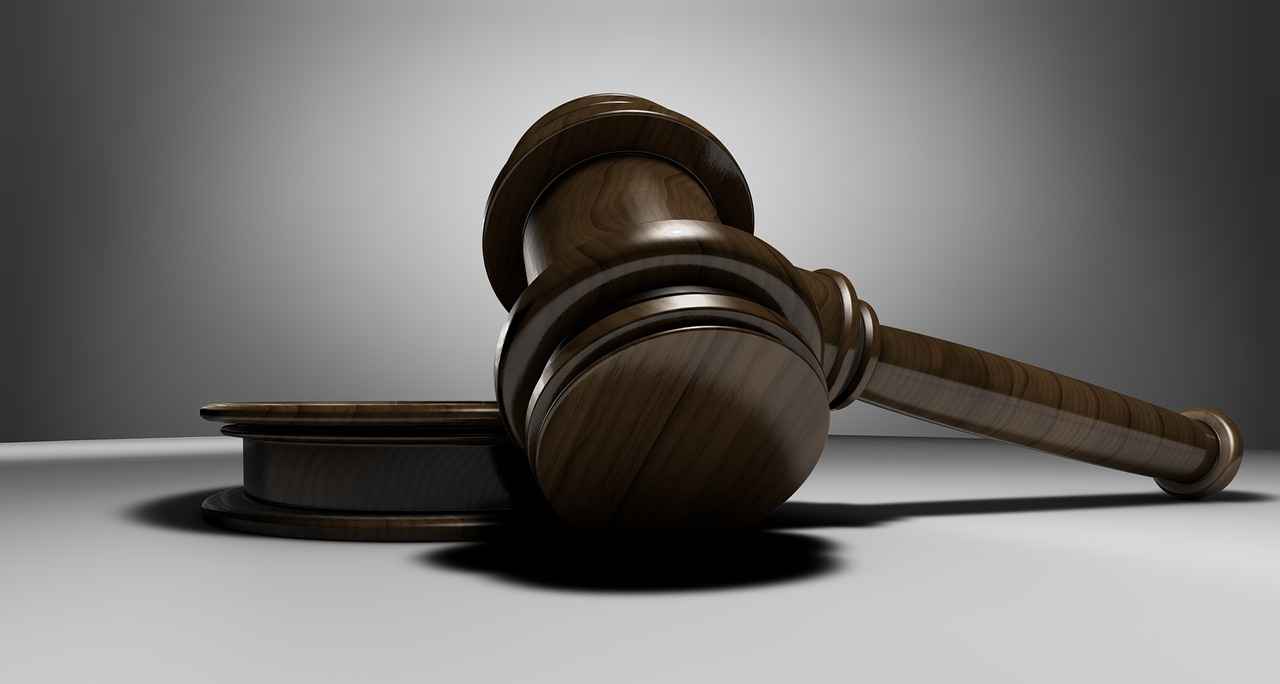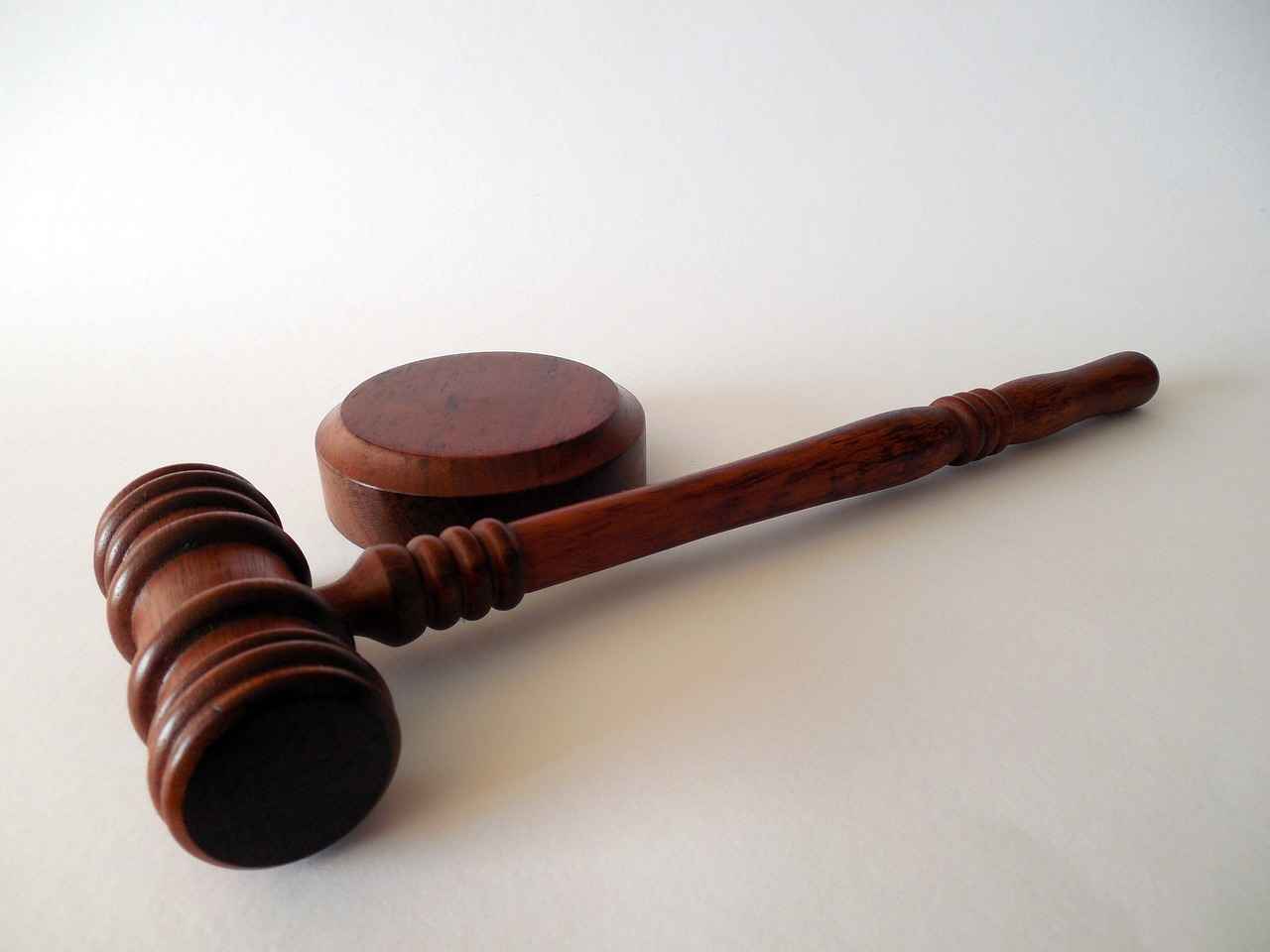This article delves into the most common types of legal cases in the U.S. and provides expert guidance on how to find qualified attorneys in Philadelphia and other major cities.
Understanding the various types of legal cases is essential for anyone seeking legal assistance. Below is a comprehensive overview of common legal issues:
- Personal Injury: This category includes cases like car accidents, slip-and-fall incidents, and workplace injuries. A specialized personal injury attorney can help you navigate the complexities of these cases.
- Medical Malpractice: Cases involving negligence by healthcare professionals require attorneys with specific expertise. Understanding healthcare law is crucial for a favorable outcome.
- Breach of Contract: Often arising in business contexts, these cases necessitate an attorney experienced in contract law to protect your interests effectively.
- Property Disputes: Issues related to boundary disagreements or landlord-tenant conflicts can be emotionally charged. A knowledgeable attorney can help resolve these disputes.
- Defamation: Cases involving libel and slander can severely affect reputations. A skilled attorney is essential for navigating the complexities of defamation claims.
- Employment Disputes: From wrongful termination to discrimination, employment law is a complex field. An attorney with expertise in this area is vital for protecting your rights.
- Product Liability: Injuries caused by defective products can lead to significant claims. An experienced attorney can help hold manufacturers accountable.
- Wrongful Death: These emotionally charged cases require a compassionate attorney who can guide you through the process of seeking justice.
- Class Action Lawsuits: These allow individuals to collectively address grievances against larger entities. An attorney experienced in class actions is crucial for effective representation.
- Criminal Defense: Charges like assault and battery or drug offenses require a skilled criminal defense attorney to protect your rights and navigate the legal system.
- Fraud and Embezzlement: These cases involve intricate financial dealings, necessitating a lawyer with experience in white-collar crime.
- Domestic Violence: Cases in this category require sensitive handling and legal knowledge, making an experienced family law attorney essential.
- Divorce and Family Law: Navigating issues like custody and support can be emotionally taxing. A knowledgeable attorney can provide guidance during these challenging times.
When searching for an attorney, especially in major metropolitan areas like New York City, Los Angeles, Chicago, and Houston, consider the following steps:
- Utilize Reputable Platforms: Websites like Avvo, FindLaw, and Martindale-Hubbell can help you find qualified attorneys based on your specific legal needs.
- Check Credentials: Look for attorneys with relevant experience, certifications, and a strong track record in the specific area of law related to your case.
- Seek Referrals: Ask friends, family, or colleagues for recommendations. Personal referrals can often lead to trustworthy legal professionals.
- Schedule Consultations: Many attorneys offer free initial consultations. Use this opportunity to discuss your case and assess the attorney’s approach.
While searching for legal representation, be aware of potential red flags:
- Guaranteed Results: Be cautious of any attorney who promises guaranteed outcomes; legal cases are inherently uncertain.
- Lack of Transparency: Avoid attorneys who are not clear about their fees and billing practices.
- Poor Communication: An attorney who is unresponsive or fails to communicate effectively may not be the best choice for your legal needs.
In conclusion, finding the right attorney can significantly impact the outcome of your legal case. By understanding the common types of legal issues and following the steps outlined above, you can make an informed decision when seeking legal representation in Philadelphia or any major city.

Understanding Personal Injury Cases
Personal injury cases represent a significant area of law, encompassing a diverse array of incidents that can lead to injury or harm. These cases can arise from various situations, including but not limited to car accidents, slip-and-fall incidents, workplace injuries, and defective products. The common thread among these cases is that they involve someone being harmed due to the negligence or wrongful actions of another party.
In the realm of personal injury law, it is essential to find a specialized attorney who has extensive experience in handling such cases. The complexities of personal injury law require a deep understanding of both legal principles and the specific circumstances surrounding each case. A qualified attorney can help victims navigate the often overwhelming legal landscape, ensuring that their rights are protected and that they receive the compensation they deserve.
When searching for a personal injury attorney, consider the following proven methods:
- Referrals: Ask friends, family, or colleagues if they can recommend a reputable attorney who specializes in personal injury cases.
- Online Reviews: Utilize legal directories and review platforms to read about the experiences of previous clients.
- Consultation: Many attorneys offer free initial consultations, which can provide insight into their approach and expertise.
- Professional Associations: Look for attorneys who are members of national and state bar associations, as well as organizations specializing in personal injury law.
It is also vital to examine the attorney’s credentials. Look for their track record in winning cases similar to yours, their educational background, and any accolades or recognitions they may have received in the field of personal injury law.
However, it is equally important to be aware of red flags when hiring a personal injury attorney:
- Unrealistic Promises: Be cautious of attorneys who guarantee specific outcomes, as no lawyer can predict the result of a case with certainty.
- Lack of Communication: If an attorney is difficult to reach or does not respond promptly to inquiries, it may indicate a lack of commitment to your case.
- High Pressure Tactics: Avoid attorneys who pressure you into making quick decisions or signing contracts without fully understanding the implications.
In summary, personal injury cases can be complex and emotionally taxing. Finding the right attorney is crucial for ensuring that you receive fair compensation for your injuries. By utilizing the methods outlined above and being vigilant about potential red flags, you can make an informed decision when selecting a legal representative in this vital area of law.

Medical Malpractice: A Unique Challenge
When dealing with medical malpractice claims, the importance of selecting the right attorney cannot be overstated. These cases, which arise when a healthcare provider fails to meet the accepted standard of care, can be particularly challenging due to the complex nature of healthcare law. It is essential to choose an attorney who not only understands the law but also has specific expertise in the medical field.
Medical malpractice can occur in various forms, including misdiagnosis, surgical errors, and medication mistakes. Each of these scenarios requires a deep understanding of both legal and medical principles. An attorney with experience in medical malpractice cases will be familiar with the intricacies of healthcare regulations, medical standards, and the necessary procedures for filing a claim.
Furthermore, the outcome of a medical malpractice case can hinge on the ability to establish negligence. This involves proving that the healthcare provider’s actions fell below the accepted standard of care, and that this failure directly resulted in harm to the patient. A qualified attorney will have the skills to gather and present the necessary evidence, such as expert testimony and medical records, to build a compelling case.
When searching for a medical malpractice attorney, consider the following proven methods:
- Referrals: Ask for recommendations from friends, family, or healthcare professionals who may have experience with legal matters.
- Online Platforms: Utilize legal referral services and websites that specialize in connecting clients with attorneys based on their specific needs.
- Credentials: Look for attorneys who are board-certified in medical malpractice law or who have a proven track record of successful cases in this area.
- Consultations: Schedule initial consultations to assess the attorney’s expertise, approach, and compatibility with your case.
It is also important to be aware of potential red flags when hiring a lawyer:
- Guaranteed Outcomes: Be wary of attorneys who promise specific results, as no case can be guaranteed.
- Lack of Transparency: Ensure the attorney is upfront about fees and potential costs associated with your case.
- Poor Communication: Choose an attorney who communicates clearly and promptly, as effective communication is crucial in legal matters.
In summary, medical malpractice cases present unique challenges that require specialized legal expertise. By taking the time to find a qualified attorney, you can significantly increase your chances of a favorable outcome. Remember to leverage referrals, check credentials, and remain vigilant for red flags during your search. With the right legal representation, you can navigate the complexities of your case and seek the justice you deserve.

Breach of Contract: Protecting Your Interests
Breach of contract cases are common in business contexts, often arising when one party fails to fulfill their obligations outlined in a legally binding agreement. These disputes can have significant financial implications, making it essential to engage an attorney who specializes in contract law. An experienced lawyer can help you navigate the complexities of your case, ensuring that your rights are protected and that resolutions are achieved efficiently.
When selecting an attorney for a breach of contract case, consider the following key aspects:
- Experience in Contract Law: Look for attorneys who have a proven track record in handling breach of contract cases. Their familiarity with the nuances of contract law can make a substantial difference in the outcome.
- Understanding of Business Practices: An attorney with experience in your specific industry can provide invaluable insights. They will better understand the standard practices and expectations within your field.
- Communication Skills: Effective communication is vital in legal proceedings. Ensure that your attorney can explain legal concepts clearly and keeps you informed throughout the process.
- Negotiation Skills: Many breach of contract cases can be settled out of court. An attorney with strong negotiation skills can help you reach a favorable settlement without the need for prolonged litigation.
In metropolitan areas like New York City or Los Angeles, the legal market can be competitive. Here are some strategies to find the right attorney:
- Online Legal Directories: Utilize platforms such as Avvo, FindLaw, or Martindale-Hubbell to search for attorneys with expertise in contract law. These platforms often include reviews and ratings from previous clients.
- Referrals: Ask for recommendations from trusted colleagues or business associates who have dealt with similar legal issues. Personal referrals can lead you to qualified attorneys.
- Initial Consultations: Many attorneys offer free initial consultations. Use this opportunity to discuss your case and gauge their expertise, approach, and compatibility with your needs.
While searching for an attorney, be aware of potential red flags. Avoid lawyers who:
- Promise Guaranteed Results: No attorney can guarantee a specific outcome. Be cautious of those who make such claims, as they may be more focused on securing your business than providing honest legal counsel.
- Lack Transparency: Ensure that your attorney is clear about their fee structure and any potential additional costs. Hidden fees can lead to misunderstandings later on.
- Have Poor Communication: If an attorney is difficult to reach or fails to respond promptly to your inquiries, consider this a warning sign. Effective communication is critical for a successful attorney-client relationship.
In conclusion, navigating a breach of contract case requires careful consideration and the right legal representation. By focusing on an attorney’s experience, communication skills, and industry knowledge, you can find a legal professional who will advocate for your interests. Take the time to research and consult with potential attorneys, ensuring that you choose someone who is well-equipped to handle your case effectively.

Property Disputes: Navigating Ownership Issues
Property disputes can be a significant source of stress and conflict, often arising from various issues such as boundary disagreements, easement rights, and landlord-tenant conflicts. These disputes can escalate quickly, leading to emotional distress and financial implications. Understanding the nature of these disputes is essential for anyone who finds themselves in such a situation.
One of the most common types of property disputes involves boundary disagreements. Neighbors may have differing opinions about where their property lines are, which can lead to disputes over fences, trees, and other structures. In such cases, it is crucial to have a clear understanding of property surveys and local zoning laws. Engaging a knowledgeable attorney can assist in resolving these disputes amicably, often through mediation or negotiation.
Another prevalent issue is landlord-tenant conflicts. These disputes can arise over various issues, including lease agreements, security deposits, maintenance responsibilities, and eviction processes. Tenants may feel that their rights are being violated, while landlords may struggle with tenants who do not adhere to the lease terms. In urban areas, where rental markets can be fierce, having an attorney who understands local housing laws is invaluable. They can help navigate the legal complexities and ensure that both parties are treated fairly.
Furthermore, property disputes can also involve ownership issues, such as claims of adverse possession or disputes among heirs regarding inherited property. These matters often require a deep understanding of property law and the ability to interpret legal documents accurately. An experienced attorney can provide guidance on how to establish ownership rights and represent clients in court if necessary.
When faced with a property dispute, it is essential to seek legal counsel promptly. Here are some proven methods for finding the right attorney:
- Research Credentials: Look for attorneys who specialize in real estate law and have a track record of successfully handling property disputes.
- Seek Referrals: Ask friends, family, or colleagues for recommendations. Personal experiences can provide valuable insights into an attorney’s capabilities.
- Use Reputable Platforms: Websites like Avvo, Martindale-Hubbell, and the American Bar Association can help you find qualified attorneys in your area.
- Check Reviews: Read online reviews and testimonials to gauge the experiences of previous clients.
While searching for an attorney, be mindful of red flags that may indicate a less-than-reputable professional:
- Attorneys who promise guaranteed outcomes without understanding your case.
- Those who lack transparency regarding their fees and billing practices.
- Poor communication skills or unresponsiveness to inquiries.
In conclusion, property disputes can be complex and emotionally charged, but with the right legal representation, individuals can navigate these challenges effectively. Engaging a knowledgeable attorney can provide clarity, protect your rights, and facilitate a resolution that is fair and just.

Landlord-Tenant Disputes: Know Your Rights
Landlord-tenant disputes are a common occurrence, particularly in urban areas where housing is in high demand. These conflicts can arise from various issues, including lease agreements, evictions, and tenant rights. Understanding your rights as a tenant or landlord is crucial for navigating these often complex situations.
In many cases, landlords and tenants may find themselves at odds over issues such as unpaid rent, property maintenance, or the terms of a lease. Without a clear understanding of local housing laws, both parties may struggle to resolve their disputes amicably. This is where the expertise of an attorney familiar with local housing regulations becomes invaluable.
When dealing with landlord-tenant disputes, it is essential to know the specific rights afforded to tenants under the law. For instance, tenants have the right to a safe and habitable living environment, and landlords are obligated to maintain the property accordingly. If a landlord fails to make necessary repairs, a tenant may have grounds to withhold rent or take legal action.
Conversely, landlords also have rights that must be respected. They have the right to collect rent on time and to evict tenants who violate lease terms. Understanding the legal process for eviction is critical, as improper procedures can lead to delays and complications.
To effectively resolve landlord-tenant disputes, consider the following steps:
- Consult with an Attorney: Seek legal advice from an attorney who specializes in landlord-tenant law. They can provide guidance tailored to your specific situation.
- Document Everything: Keep detailed records of all communications, payments, and any issues that arise. This documentation can be crucial in legal proceedings.
- Know Your Local Laws: Familiarize yourself with the housing laws in your area, as they can vary significantly from one jurisdiction to another.
- Consider Mediation: Explore mediation as a means of resolving disputes. This can often lead to a quicker and less adversarial resolution.
- Stay Professional: Maintain a professional demeanor in all interactions, even when disputes become heated. This can help prevent escalation.
In summary, landlord-tenant disputes are an unfortunate reality in many urban settings. Engaging an attorney who understands local housing laws can make a significant difference in the outcome of these disputes. By knowing your rights and responsibilities and taking proactive steps, you can navigate these challenges more effectively.

Defamation Cases: Protecting Your Reputation
Defamation cases are critical legal matters that can have profound effects on an individual’s or organization’s reputation. Defamation is a legal term that refers to the act of making false statements about someone that can harm their reputation. It is categorized into two types: libel, which refers to written defamation, and slander, which pertains to spoken defamation. In today’s digital age, where information spreads rapidly through social media and online platforms, the implications of defamation can be especially severe.
When someone makes a defamatory statement, it can lead to significant emotional distress, loss of income, and damage to personal and professional relationships. Therefore, understanding your rights in such situations is crucial. A skilled attorney specializing in defamation law can help you navigate the complexities involved in proving defamation, including establishing that the statement was false, made with actual malice or negligence, and resulted in harm.
To effectively pursue a defamation case, the following steps are essential:
- Document Everything: Keep records of all relevant communications, including emails, texts, and social media posts.
- Consult a Legal Expert: Seek an attorney who has experience with defamation cases. They can provide valuable insights into the viability of your case.
- Understand the Law: Familiarize yourself with the legal standards for defamation in your jurisdiction, as these can vary significantly.
- Consider the Impact: Assess how the defamatory statements have affected your life and career, as this will be crucial in court.
Finding the right attorney for your defamation case involves several key considerations:
- Experience: Look for attorneys who have a proven track record in handling defamation cases specifically.
- Reputation: Research their standing in the legal community. Online reviews and testimonials can provide insight into their practice.
- Communication Skills: Choose an attorney who communicates clearly and is responsive to your needs.
- Fee Structure: Understand their billing practices upfront. Many defamation attorneys work on a contingency fee basis, meaning they only get paid if you win your case.
In addition to these factors, be aware of red flags when selecting an attorney:
- Guaranteed Outcomes: Be cautious of any attorney who promises a guaranteed win. Legal outcomes are inherently uncertain.
- Lack of Transparency: If an attorney is vague about their fees or the process, it may indicate a lack of professionalism.
- Poor Communication: If you struggle to get responses during initial consultations, it may be a sign of how they will handle your case.
In conclusion, defamation cases require careful consideration and expert legal guidance. By understanding the complexities of defamation law and the importance of choosing the right attorney, you can effectively protect your reputation and seek justice for any harm caused by false statements. Remember, the right legal professional can make a significant difference in the outcome of your case.

Employment Disputes: Employee Rights
Employment disputes are a significant aspect of workplace dynamics, encompassing a variety of issues such as wrongful termination, discrimination claims, and harassment allegations. Understanding your rights as an employee is essential for navigating these complex situations effectively. When faced with an employment dispute, it is crucial to seek the guidance of an attorney who specializes in employment law. This article will discuss the types of employment disputes and provide expert advice on how to find the right legal representation.
Types of Employment Disputes
- Wrongful Termination: This occurs when an employee is fired for illegal reasons, such as discrimination or retaliation. It is vital to document all communications and actions leading to the termination.
- Discrimination: Claims can arise from unfair treatment based on race, gender, age, religion, or disability. Understanding federal and state laws protecting employees is crucial.
- Harassment: This includes any unwelcome behavior that creates a hostile work environment. It can be based on any protected characteristic and requires immediate attention.
- Wage and Hour Disputes: Issues related to unpaid wages, overtime pay, and minimum wage violations often arise and can significantly impact an employee’s financial stability.
Finding the Right Attorney
When searching for an attorney to handle employment disputes, consider the following methods:
- Referrals: Seek recommendations from friends, family, or colleagues who have had positive experiences with employment attorneys.
- Online Platforms: Use reputable legal directories such as Avvo or FindLaw to find qualified attorneys in your area.
- Consultation: Schedule initial consultations with potential attorneys to discuss your case and evaluate their expertise and approach.
Credentials to Look For
When assessing potential attorneys, pay attention to the following credentials:
- Specialization: Look for attorneys who specialize in employment law and have a proven track record in handling cases similar to yours.
- Experience: Consider the number of years the attorney has been practicing and their success rate in employment-related cases.
- Bar Association Membership: Check if the attorney is a member of relevant bar associations, such as the American Bar Association or state-specific associations.
Red Flags to Avoid
Be cautious of the following warning signs when hiring an attorney:
- Guarantees: Avoid attorneys who promise guaranteed outcomes, as no lawyer can predict the result of a case with certainty.
- Lack of Communication: If an attorney is unresponsive during initial consultations, it may indicate a lack of commitment to client communication.
- High Turnover: Frequent changes in staff or attorneys within a firm can be a sign of instability or poor management.
In conclusion, employment disputes can be complex and emotionally charged. Engaging a knowledgeable attorney with expertise in employment law is vital for protecting your rights and navigating the legal landscape of workplace issues. By following the methods outlined above, you can find a qualified attorney who will advocate for your interests and help you achieve a favorable outcome.

Product Liability: Holding Manufacturers Accountable
Product liability cases are critical in ensuring that consumers are protected from injuries caused by defective products. These cases can arise from a variety of issues, including design flaws, manufacturing defects, or inadequate warnings about the product’s potential dangers. When a product fails and causes harm, the responsibility often falls on the manufacturers, distributors, or retailers involved in bringing the product to market.
To successfully navigate the complexities of product liability cases, it is essential to engage an attorney who specializes in this area of law. An experienced attorney can help you gather the necessary evidence, understand the applicable laws, and build a strong case against the responsible parties. They can also assist in determining the best course of action, whether it involves negotiating a settlement or pursuing litigation.
When searching for a qualified product liability attorney, consider the following guidelines:
- Look for specialization: Choose an attorney who specializes in personal injury and product liability law. Their expertise will be invaluable in understanding the nuances of your case.
- Check credentials: Verify the attorney’s education, licenses, and any certifications in product liability law. Membership in professional organizations can also indicate a commitment to staying updated on legal developments.
- Experience matters: An attorney with a proven track record in handling product liability cases will have the negotiation and litigation skills necessary to advocate for your rights effectively.
- Client reviews: Read testimonials and reviews from previous clients to gauge the attorney’s reputation and success rate. This can provide insight into their communication skills and overall effectiveness.
- Consultation: Many attorneys offer free initial consultations. Use this opportunity to discuss your case and assess whether you feel comfortable working with them.
Additionally, be wary of red flags when hiring an attorney:
- Promises of guaranteed outcomes: No attorney can guarantee a specific result, especially in complex cases like product liability.
- Lack of transparency: If an attorney is unclear about their fees or the process, it may indicate a lack of professionalism.
- Poor communication: An attorney should keep you informed and respond to your inquiries promptly. A lack of communication can lead to misunderstandings and frustration.
In conclusion, product liability cases are vital for holding manufacturers accountable and ensuring consumer safety. By following the guidelines outlined above, you can find a qualified attorney who will advocate for your rights and help you navigate the legal system effectively. Remember, the right legal representation can make a significant difference in the outcome of your case.

Wrongful Death: Seeking Justice
Wrongful death cases represent some of the most devastating legal challenges a family can face. The loss of a loved one due to another’s negligence or intentional actions is not only a profound emotional burden but also a complex legal issue that requires careful navigation. In these situations, it is crucial to enlist the help of a compassionate and experienced attorney who specializes in wrongful death claims.
These cases can arise from various circumstances, including automobile accidents, medical malpractice, workplace incidents, and even criminal actions. Each case carries its own set of legal intricacies that necessitate a thorough understanding of both state and federal laws. Therefore, having a knowledgeable attorney by your side can make a significant difference in the outcome of your case.
When seeking an attorney for a wrongful death case, consider the following key factors:
- Experience in Wrongful Death Law: Look for attorneys who have a proven track record in handling wrongful death cases. Their experience will be invaluable in navigating the legal landscape and maximizing your chances of receiving fair compensation.
- Empathy and Compassion: A good attorney should not only be skilled but also compassionate. They need to understand the emotional toll that a wrongful death can take on a family and provide support throughout the legal process.
- Reputation: Research the attorney’s reputation within the legal community. Online reviews, testimonials, and peer recommendations can provide insights into their professionalism and effectiveness.
- Transparent Fees: Understand the fee structure before hiring an attorney. Many wrongful death attorneys work on a contingency fee basis, meaning they only get paid if you win your case. Ensure you are clear about any additional costs that may arise.
Additionally, it is wise to ask potential attorneys about their approach to handling wrongful death cases. Some may prefer to settle out of court, while others may be more inclined to take the case to trial. Understanding their strategy can help you align your expectations and choose an attorney who matches your needs.
In major metropolitan areas such as New York City, Los Angeles, and Chicago, the competition among attorneys can be fierce. Utilize reputable platforms such as Avvo, FindLaw, and Martindale-Hubbell to research and compare lawyers. These platforms provide ratings, reviews, and detailed profiles of attorneys, making it easier to find qualified professionals in your area.
Be wary of red flags when hiring an attorney. If an attorney guarantees specific results or pressures you into making quick decisions, it may be a sign of unprofessionalism. Additionally, poor communication or a lack of transparency regarding fees and processes can indicate that an attorney may not have your best interests at heart.
In conclusion, while the emotional pain of losing a loved one is immeasurable, navigating the wrongful death legal process does not have to be overwhelming. By choosing the right attorney—one who is experienced, empathetic, and reputable—you can ensure that you are taking the necessary steps toward seeking justice for your loved one. Remember, the right legal representation can provide not only guidance through the complexities of the law but also the support you need during this challenging time.

Class Action Lawsuits: Collective Action
Class action lawsuits serve as a powerful tool for individuals seeking justice against larger entities, such as corporations or government bodies. These lawsuits allow a group of people with similar claims to come together, making it easier to tackle complex legal issues that would be difficult to pursue individually. For instance, if a company sells a defective product that harms multiple consumers, a class action can consolidate these claims into a single case, enhancing the efficiency of the legal process.
When considering a class action lawsuit, it is crucial to have an attorney with specific experience in this area. Class action litigation is often more complicated than traditional lawsuits, requiring a deep understanding of both legal procedures and the specific issues at hand. An attorney who specializes in class actions can help navigate the intricacies of these collective legal efforts, from filing the initial complaint to managing the class certification process.
Moreover, class action lawsuits can address a wide range of issues, including consumer fraud, employment discrimination, and environmental damage. The attorney’s role is not just to represent the plaintiffs but also to ensure that the interests of all class members are adequately represented. This requires a delicate balance of advocacy and negotiation skills.
To find a qualified attorney for a class action lawsuit, consider the following steps:
- Research Law Firms: Look for law firms that have a proven track record in handling class action cases. Websites, reviews, and case results can provide insight into their experience.
- Check Credentials: Verify the attorney’s credentials, including their education, bar association membership, and any specialized certifications in class action litigation.
- Seek Referrals: Ask friends, family, or colleagues if they can recommend attorneys who have successfully handled class action lawsuits.
- Consult Legal Directories: Utilize platforms like Avvo, Martindale-Hubbell, or FindLaw to search for attorneys specializing in class actions.
While searching for an attorney, be aware of potential red flags. Avoid lawyers who make unrealistic promises about the outcome of your case or those who lack transparency regarding their fees. Communication is key; if an attorney is difficult to reach or unresponsive, this could indicate problems down the line.
In conclusion, class action lawsuits can be a vital means of seeking justice for individuals wronged by larger entities. Engaging an experienced attorney can significantly enhance your chances of a favorable outcome. By conducting thorough research and being mindful of red flags, you can find a qualified legal professional to guide you through this complex process.

Criminal Defense: Assault and Battery
When facing charges of assault and battery, individuals can find themselves in a precarious situation with potentially severe legal consequences. These charges can range from misdemeanors to felonies, depending on the severity of the incident and the jurisdiction. Understanding the implications of these charges is crucial. A conviction can lead to significant penalties, including hefty fines, imprisonment, and a permanent criminal record, which can affect various aspects of life, such as employment opportunities and personal relationships.
Given the gravity of assault and battery charges, it is essential to seek the assistance of a skilled criminal defense attorney. These legal professionals specialize in navigating the complexities of the criminal justice system and are equipped to provide the necessary guidance and representation. Here are some key reasons why hiring an experienced attorney is vital:
- Legal Expertise: A knowledgeable attorney understands the nuances of criminal law and can identify potential defenses that may be applicable to your case.
- Case Evaluation: An experienced lawyer can assess the specifics of your case, including evidence and witness statements, to develop a robust defense strategy.
- Plea Bargaining: Skilled attorneys often have the negotiation skills required to seek plea deals that can reduce charges or penalties.
- Trial Representation: If your case goes to trial, having a competent attorney by your side can significantly impact the outcome, as they can effectively argue on your behalf.
When searching for the right attorney, consider the following proven methods:
- Referrals: Ask friends, family, or colleagues for recommendations, especially if they have dealt with similar legal issues.
- Online Platforms: Utilize reputable legal directories such as Avvo or FindLaw to find qualified attorneys in your area.
- Consult Reviews: Look for client reviews and testimonials to gauge the attorney’s reputation and success rate.
As you evaluate potential attorneys, pay close attention to their credentials:
- Experience: Look for attorneys who specialize in criminal defense, particularly those with a track record in handling assault and battery cases.
- Bar Association Membership: Check if the attorney is a member of the state bar association, which indicates they are licensed to practice law in your state.
- Continuing Education: Attorneys who engage in ongoing education and training in criminal law are likely to be more informed about current laws and defense strategies.
However, it’s equally important to be aware of red flags when hiring a lawyer:
- Guaranteed Outcomes: Be wary of attorneys who promise guaranteed results, as no lawyer can predict the outcome of a case with certainty.
- Lack of Transparency: Avoid attorneys who are vague about their fees or charge upfront costs without a clear explanation of their services.
- Poor Communication: A good attorney should be responsive and communicative. If they are difficult to reach or do not return calls promptly, consider this a warning sign.
In conclusion, facing assault and battery charges is a serious matter that requires immediate attention from a qualified criminal defense attorney. By understanding the importance of legal representation and knowing how to find the right attorney, individuals can better navigate the complexities of the legal system and work towards a favorable outcome. Always prioritize experienced professionals who are dedicated to protecting your rights and interests throughout the legal process.

Drug Offenses: Navigating Legal Consequences
Drug offenses represent a significant category of criminal charges in the United States, encompassing a wide array of illegal activities related to the possession, distribution, and manufacturing of controlled substances. These offenses can vary in severity, from minor possession charges to serious trafficking allegations that carry substantial prison sentences. Given the complexities and potential consequences associated with drug offenses, selecting a qualified attorney who specializes in criminal law is crucial for anyone facing such charges.
When dealing with drug-related legal issues, it is essential to understand that the legal landscape can differ dramatically by state and locality. This variability means that a lawyer with experience in drug law within the specific jurisdiction where the charges are filed can make a significant difference in the outcome of a case. An attorney well-versed in local laws will be better equipped to identify potential defenses, negotiate plea deals, or challenge the legality of evidence obtained during arrests.
Here are some important considerations when searching for a lawyer specializing in drug offenses:
- Experience and Specialization: Look for attorneys who have a proven track record handling drug-related cases. Their experience can provide insights into the local judicial system and potential defenses.
- Reputation: Research online reviews and testimonials from previous clients. A reputable attorney will have positive feedback regarding their legal expertise and client interactions.
- Consultation: Schedule consultations with multiple attorneys. This will allow you to gauge their understanding of your case and their approach to defense.
- Communication: Choose an attorney who communicates clearly and is willing to explain complex legal concepts in a way that you can understand. Effective communication is key to a successful attorney-client relationship.
- Fees: Inquire about their fee structure upfront. Understanding how they charge—whether it’s hourly, flat fee, or contingent—can help you avoid unexpected costs down the line.
Moreover, there are several red flags to be aware of when hiring a lawyer:
- Promises of Guaranteed Outcomes: Be wary of any attorney who guarantees a specific outcome. Legal cases can be unpredictable, and no reputable lawyer can promise a win.
- Lack of Transparency: If an attorney is not forthcoming about their fees or the potential costs associated with your case, it may be a sign to look elsewhere.
- Poor Communication Skills: If an attorney does not respond promptly to your inquiries during the initial consultation, it may indicate how they will handle your case.
Ultimately, navigating the legal consequences of drug offenses requires not only a knowledgeable attorney but also one who is empathetic to your situation. A skilled lawyer will not only defend you against the charges but also work to protect your future. They can provide guidance on rehabilitation options and help mitigate the impact of the charges on your life.
In summary, when facing drug offenses, selecting the right attorney can significantly influence the outcome of your case. By focusing on experience, reputation, and clear communication, individuals can find legal representation that not only understands the intricacies of drug law but is also dedicated to achieving the best possible results for their clients.

Theft and Burglary: Legal Representation
Theft and burglary charges are serious offenses that can have lasting impacts on an individual’s life. When faced with such allegations, it is imperative to seek legal representation from an attorney who specializes in criminal law. A qualified lawyer can provide a robust defense, ensuring that your rights are protected throughout the legal process.
Theft typically involves the unlawful taking of someone else’s property with the intent to permanently deprive the owner of it, while burglary refers to entering a building unlawfully with the intent to commit a crime inside, often theft. Both crimes can lead to severe penalties, including hefty fines and imprisonment.
When searching for a criminal defense attorney in Philadelphia or any major city, consider the following key factors:
- Experience: Look for an attorney who has substantial experience specifically in handling theft and burglary cases. Their familiarity with the local court system and prosecutors can be invaluable.
- Reputation: Research the attorney’s reputation through online reviews, testimonials, and professional ratings. A strong track record in similar cases can indicate their capability.
- Communication Skills: An effective attorney should be able to communicate clearly and keep you informed about your case’s progress. This transparency is essential for building trust.
- Strategic Approach: During initial consultations, evaluate how the attorney plans to approach your case. A well-thought-out strategy can significantly influence the outcome.
Additionally, utilize reputable platforms such as Avvo, FindLaw, or your local bar association’s directory to find qualified attorneys. These resources often provide detailed profiles, including areas of expertise, client reviews, and contact information.
As you narrow down your options, be aware of red flags that may indicate an attorney is not the right fit:
- Guaranteed Results: Be wary of any attorney who promises specific outcomes. Legal cases are inherently unpredictable.
- Lack of Transparency: If an attorney is unclear about their fees or the legal process, this could indicate potential issues down the line.
- Poor Communication: If you struggle to reach the attorney or receive responses, consider this a warning sign.
In conclusion, facing theft and burglary charges requires a skilled attorney who can navigate the complexities of the legal system effectively. By conducting thorough research, utilizing reputable resources, and being mindful of potential red flags, you can find a qualified legal professional to help safeguard your rights and work towards a favorable outcome.

Fraud and Embezzlement: Complex Legal Matters
Fraud and embezzlement cases represent some of the most intricate and challenging legal matters within the realm of white-collar crime. These cases often involve complex financial transactions, deceptive practices, and a multitude of legal statutes that can vary significantly by jurisdiction. As a result, it is imperative for individuals facing such allegations or charges to secure an attorney who possesses a deep understanding of both the legal and financial aspects involved.
When searching for a qualified attorney, consider the following essential factors:
- Experience in White-Collar Crime: Look for attorneys who specialize in white-collar crime. Their familiarity with fraud and embezzlement cases will provide a strategic advantage in navigating your legal situation.
- Track Record: Investigate the attorney’s history of handling similar cases. A successful track record can be indicative of their ability to achieve favorable outcomes.
- Understanding of Financial Systems: An attorney with a background in finance or accounting can offer valuable insights into the intricate details of your case, which may involve accounting practices, financial regulations, and corporate governance.
- Reputation: Research online reviews, testimonials, and professional ratings. A well-respected attorney in the field will often have a robust reputation among peers and clients alike.
In addition to these factors, consider utilizing reputable legal platforms that provide listings of qualified attorneys. Websites such as Avvo and FindLaw allow you to filter attorneys by specialty and location, making it easier to find someone who meets your specific needs.
Moreover, seeking referrals from trusted sources, such as friends, family, or colleagues, can lead you to competent legal representation. Personal recommendations often provide insights that online research may not reveal.
As you evaluate potential attorneys, be vigilant for red flags that may indicate a lack of professionalism or competence:
- Guaranteed Results: Be wary of any attorney who promises specific outcomes. Legal cases are inherently unpredictable, and no attorney can guarantee success.
- Lack of Transparency: An attorney should be clear about their fees and billing practices. If they are vague or evasive about costs, it may be a sign to look elsewhere.
- Poor Communication: Effective communication is crucial in legal matters. If an attorney is difficult to reach or slow to respond, it may hinder your case.
Finally, it is essential to schedule consultations with potential attorneys. This meeting allows you to assess their communication style, expertise, and whether you feel comfortable working with them. During the consultation, ask specific questions related to your case and gauge their responses.
In conclusion, navigating the complexities of fraud and embezzlement cases requires a knowledgeable and experienced attorney. By conducting thorough research, utilizing reputable platforms, and being mindful of red flags, you can find the right legal representation to effectively advocate for your interests.

Domestic Violence: Legal Protections
Domestic violence is a serious issue that affects countless individuals and families across the United States. It encompasses a range of abusive behaviors, including physical, emotional, and psychological harm. Given the sensitive nature of these cases, it is imperative to seek legal assistance from an attorney who specializes in family law and has experience dealing with domestic violence situations.
Victims of domestic violence often face a myriad of challenges, from emotional trauma to legal hurdles. An experienced attorney can provide crucial support in navigating the intricacies of the legal system. One of the first steps an attorney can assist with is obtaining a protective order, also known as a restraining order. This legal document can provide immediate safety by prohibiting the abuser from contacting or coming near the victim.
In addition to protective orders, a knowledgeable attorney can help victims understand their rights and options. This includes filing for divorce, seeking custody of children, and pursuing financial support. Each of these legal processes can be overwhelming, particularly for someone who is already dealing with the emotional fallout of domestic violence. An attorney can guide victims through these proceedings, ensuring that their rights are upheld and that they receive the protection and support they need.
When searching for an attorney to handle a domestic violence case, it is essential to look for someone with a strong background in family law and a track record of successfully handling similar cases. Here are some practical steps to find the right legal representation:
- Research Online: Use legal directories and websites like Avvo, FindLaw, or Martindale-Hubbell to find attorneys specializing in family law and domestic violence cases.
- Check Credentials: Look for attorneys who are licensed to practice in your state and have relevant certifications or memberships in professional organizations.
- Read Reviews: Client testimonials and reviews can provide insight into an attorney’s reputation and effectiveness.
- Consultation: Schedule initial consultations with potential attorneys to discuss your case and assess their approach. This will also give you a sense of their communication style and empathy.
It is also important to be aware of red flags when hiring an attorney. Avoid those who:
- Make unrealistic promises about the outcome of your case.
- Are not transparent about their fees and billing practices.
- Demonstrate poor communication skills or lack of responsiveness.
In conclusion, navigating the legal landscape of domestic violence cases requires not only legal knowledge but also compassion and understanding. By selecting an attorney who specializes in this field, victims can ensure they have the best possible support as they work towards a safer and more stable future. Remember, you are not alone, and seeking help is a crucial step in reclaiming your life.

Divorce and Family Law: Navigating Change
Divorce and family law issues can be some of the most challenging experiences individuals face. The emotional toll can be overwhelming, as it often involves significant life changes, including the separation of families and the reallocation of shared resources. Engaging with a knowledgeable attorney who specializes in family law is essential for navigating these turbulent waters effectively.
When dealing with divorce, it is crucial to understand your rights regarding child custody, child support, and the division of property. An experienced attorney can provide clarity on these matters, ensuring that your interests and those of your children are protected throughout the process. They can help you formulate a strategy that aligns with your goals and assists you in making informed decisions.
In terms of child custody, there are various arrangements that can be pursued, including sole custody, joint custody, and visitation rights. A competent attorney will guide you through the legal standards that courts use to determine custody arrangements, which often consider the best interests of the child. This includes evaluating factors such as the child’s age, the emotional bonds with each parent, and the stability of each home environment.
Child support is another critical aspect that requires careful attention. The amount of support is typically determined based on state guidelines, which take into account the income of both parents and the needs of the child. An attorney can assist in negotiating support agreements and ensuring that they are fair and sustainable.
Property division can also be a contentious issue during a divorce. States generally follow either community property or equitable distribution principles. A knowledgeable attorney will help you understand how these laws apply to your situation and advocate for a fair distribution of assets and debts. This may include real estate, retirement accounts, and personal property.
Additionally, family law encompasses other vital areas such as adoption, paternity, and guardianship. Each of these areas has its own legal complexities and requirements, making it imperative to have an attorney who is well-versed in family law to guide you through the specific processes involved.
To find the right attorney for your family law needs, consider the following proven methods:
- Seek referrals from friends, family, or professionals who have had positive experiences with family law attorneys.
- Utilize reputable online platforms that provide lawyer reviews and ratings, such as Avvo, Martindale-Hubbell, or FindLaw.
- Check the attorney’s credentials, including their education, years of practice, and any specializations in family law.
- Look for attorneys who are members of professional organizations, such as the American Academy of Matrimonial Lawyers (AAML).
When meeting with potential attorneys, ask about their experience handling cases similar to yours and their approach to resolving disputes. Additionally, pay attention to their communication style; a good attorney should be responsive and willing to explain legal concepts in a way that you can understand.
However, be cautious and watch for red flags, such as:
- Attorneys who guarantee specific outcomes, as no one can predict the court’s decision.
- Lack of transparency regarding fees and billing practices.
- Poor communication skills or difficulty in reaching them when needed.
In conclusion, navigating divorce and family law issues can be daunting, but with the right legal support, you can ensure that your rights are protected and that you can move forward with confidence. A skilled attorney will not only provide you with the necessary legal knowledge but will also offer the emotional support needed during this challenging time.

Finding the Right Attorney: Proven Methods
When it comes to finding a qualified attorney, the process can often feel overwhelming. However, with the right approach, you can significantly increase your chances of securing a capable legal representative who meets your specific needs. Here are some proven methods to help you in your search:
- Utilize Reputable Online Platforms: Websites like Avvo, FindLaw, and Lawyers.com provide extensive databases of attorneys. You can filter your search based on specialty, location, and client reviews.
- Check Credentials: It’s essential to verify an attorney’s credentials. Look for their educational background, bar association membership, and any additional certifications. You can often find this information on state bar association websites.
- Seek Referrals: Personal referrals from friends, family, or colleagues can be invaluable. If someone you trust has had a positive experience with an attorney, it can provide peace of mind in your selection process.
- Schedule Consultations: Many attorneys offer free initial consultations. Use this opportunity to discuss your case, gauge their expertise, and assess whether you feel comfortable working with them.
- Assess Communication Skills: An effective attorney should communicate clearly and promptly. Pay attention to how they explain legal concepts and whether they take the time to answer your questions.
While searching for an attorney, it’s also crucial to be aware of potential red flags:
- Promises of Guaranteed Outcomes: Be wary of any attorney who guarantees a specific outcome. Legal cases can be unpredictable, and no attorney can assure success.
- Lack of Transparency: If an attorney is vague about their fees or services, consider it a warning sign. A reputable lawyer should provide a clear fee structure and discuss potential costs upfront.
- Poor Communication: If you struggle to get in touch with an attorney or if they are unresponsive, it may indicate future issues in your working relationship.
By following these guidelines and remaining vigilant, you can enhance your chances of finding a qualified attorney who will effectively represent your interests in any legal matter.

Red Flags to Avoid When Hiring a Lawyer
When embarking on the journey to find a competent attorney, it is essential to be vigilant and aware of potential red flags that might indicate a less-than-reputable legal professional. Here are some critical warning signs to watch out for:
- Guaranteed Results: Be wary of attorneys who assure you of specific outcomes. The legal landscape is unpredictable, and no competent lawyer can guarantee results. Promises of success may suggest a lack of experience or a misleading approach to your case.
- Lack of Transparency in Fees: If an attorney is not upfront about their fee structure or tries to obscure costs, this can lead to unexpected financial burdens. A trustworthy lawyer will provide a clear breakdown of their fees, including hourly rates, retainer fees, and any additional costs that may arise.
- Poor Communication Skills: Effective communication is vital in any attorney-client relationship. If a lawyer is difficult to reach, slow to respond, or fails to explain legal concepts clearly, it may indicate a lack of commitment to your case. A good attorney should prioritize keeping you informed and engaged throughout the legal process.
- Negative Reviews or Reputation: Researching an attorney’s background is crucial. Look for reviews on reputable platforms and check their standing with the state bar association. A history of complaints or disciplinary actions can signal potential issues.
- High-Pressure Tactics: Be cautious of attorneys who pressure you into signing contracts or making quick decisions. A reputable lawyer will give you time to consider your options and will respect your need for due diligence.
- Overly Aggressive Marketing: While marketing is a part of any business, an attorney who relies heavily on aggressive advertising may be more focused on acquiring clients than providing quality legal representation. Look for professionals who are recommended through word-of-mouth or trusted sources.
- Inadequate Experience in Your Case Type: Ensure that the attorney you choose has specific experience in the area of law relevant to your case. An attorney who claims expertise in all fields may not have the necessary depth of knowledge to handle your unique situation effectively.
- Unclear or Vague Contract Terms: Before signing any agreement, read it thoroughly. If the terms are unclear or if the attorney is unwilling to clarify them, it may be a sign to reconsider your choice.
By being aware of these red flags, you can make a more informed decision when selecting an attorney. Your legal representation is crucial to achieving a favorable outcome, so take the time to research and choose wisely.
Frequently Asked Questions
- What types of cases do personal injury attorneys handle?
Personal injury attorneys typically handle cases related to car accidents, slip-and-fall incidents, and other situations where someone is injured due to another’s negligence. They help victims seek compensation for medical expenses, lost wages, and pain and suffering.
- How can I find a qualified medical malpractice attorney?
Finding a qualified medical malpractice attorney involves looking for someone with specific experience in healthcare law. You can start by checking online reviews, asking for referrals from trusted sources, and ensuring they have a track record of successful malpractice cases.
- What should I do if I have a breach of contract issue?
If you find yourself in a breach of contract situation, it’s crucial to consult with an attorney who specializes in contract law. They can help you understand your rights, evaluate the contract, and guide you through the dispute resolution process.
- How can an attorney assist with landlord-tenant disputes?
An attorney can help you navigate landlord-tenant disputes by providing legal advice on lease agreements, representing you in court if necessary, and ensuring that your rights as a tenant or landlord are protected according to local housing laws.
- What are the signs of a good criminal defense attorney?
A good criminal defense attorney should have a solid understanding of criminal law, a history of successful case outcomes, and excellent communication skills. They should also be transparent about their fees and approach to your case.














